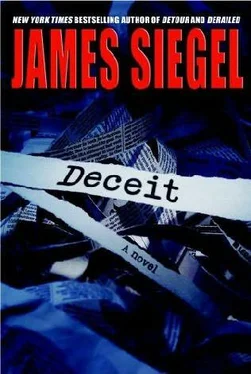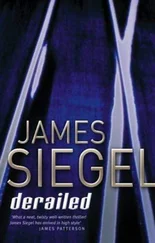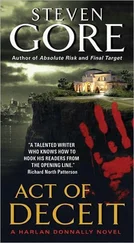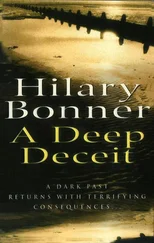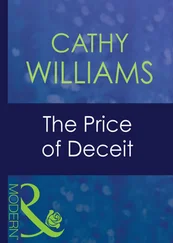Mrs. Flaherty’s son died, too. Only he’s alive.
Have you even checked to see if there’s another Benjy in the home? It’s New York all over again, isn’t it? The editor has clearly had it with me. He’s pointing to the door; he wants me gone. There’s no connection. You’re offering me two things with no connection to each other.
And then I say it. I don’t know why I didn’t say it before. I do now. I take my worn pencil and place it against the place mat in the Acropolis Diner. I draw a shaky line from Belinda’s dead son to the incinerated driver-to him .
My father smiles, reaches across the table to tousle my hair.
Good boy.
I know what you’re thinking, Dr. Payne.
My dad. My editor.
I’m not listening.
I suppose I’ll have to call Iowa and ask them to exhume the corpse.”
Sheriff Swenson sounded as if he were going over his shopping list. I’ll have to pick up some milk and margarine, grab some frozen french fries and six cans of Bumble Bee tuna, and, oh yeah, call Iowa and ask them to dig up the body from whatever cemetery they’d buried the fake Dennis in. That is, if they’re interested, which he himself clearly wasn’t.
I was back in the sterile air-conditioned confines of the Littleton sheriff’s office. Not like an urban police station at all, more like an insurance office in your typical neighborhood mall. Everything neat, tidy, and prefabricated.
No crime had been committed. That was pretty much Swenson’s point of view. No crime had been committed, at least as far he could tell. Maybe stealing Dennis Flaherty’s wallet was a crime, but that would be out of his jurisdiction, wouldn’t it? Maybe the accident hadn’t happened the way Crannell related it, but it was still an accident. Not a crime. And if Crannell had lied about his identity, okay, score one for him. It didn’t warrant a task force.
“What are you so interested in?” he asked me, not as if he wanted an answer, more as if he was dismissing me so he could get back to more important police matters like issuing parking citations.
I didn’t enlighten him about the note I’d discovered in Belinda’s picture frame.
“Two people are in an accident and neither one turns out to be whom they were supposed to be. That doesn’t bother you?”
“Not really.”
Maybe it didn’t bother him because it was me who was asking him about it.
“Isn’t there a car dealership opening you can go write about?” he said.
Yeah, that was probably it.
“I saw the plumber,” I said.
Sheriff Swenson untangled his legs, which were propped up on his desk in a physical attitude of I’m in charge here . There’s something belittling about staring at the soles of someone’s boots-the whole point, I guess.
“Did you now?” he said. “Where?”
“At Muhammed Alley. The other night.”
“Uh-huh. You sure about this?”
“Yeah. I’m sure.”
“Now that I am interested in. Why didn’t you call me?”
“He got away.”
“ Got away ? What’s that mean? Did you chase him or something?”
“No. He was just there, and then he wasn’t. When he saw me notice him, he took off.”
“He took off. Great. And he looked pretty much like the description you gave us last time?”
“Yeah-he’s kind of hard to miss. Have there been any others?” I asked.
“Any other what?”
“Break-ins.”
He didn’t answer me. “You should’ve called me, Lucas. You know that?”
“Yes.”
“Okay, fine. If he shows up in your bowling foursome next time, you’ll let me know, okay?”
“Sure.” I turned to leave, then stopped. “Do you know anything about the flood?”
“What flood?”
“The Aurora Dam Flood. Back in the fifties.”
“What about it?”
“Well… did anyone who was supposed to have died in it… were they ever found later? People that were counted in the original death toll, but somehow survived?”
For a moment, I thought he was going to say yes.
Say something other than: “The Aurora flood was a little before my time. What the fuck would I know about it?”
But that’s what he said.
Just before picking up the phone, an unspoken invitation for me to leave.
I asked Norma if John Wren had left any of his notes behind.
When I’d asked Hinch if I could do a story on the fiftieth anniversary of the Aurora Dam Flood, he said good luck, my predecessor already tried.
“Nope,” Norma said. “If he did, they would’ve been thrown out by now,” Norma said.
“You sure?”
“Ninety-nine point nine percent.” Norma was attempting to read the latest issue of Us, read admittedly being generous for a newsweekly sporting a wedding-veiled Britney Spears on its cover. Oops, she did it again -this week’s bouncy headline.
“Well, if they weren’t thrown out, where would they be?”
“ Gawwd … can’t you let an executive assistant read her trash in peace?”
“I’d like to, but this is an executive assistant kind of job.”
Norma put Brittney face down. She shuffled over to the file cabinet, which doubled as the coffee percolator table and fax bin. Norma had been married to a church choir leader who’d absconded with the church organist; she’d heard they’d ordered Hymn and Hers bath towels. She was just this side of middle age now-or sometimes that side, depending on whether she was in one of her dieting and exercise phases or not. Currently she was on the South Beach Diet and doing aerobics to Andre 3000 and friends. She opened the third drawer and began rummaging around.
“Nope,” she said. “Just empty folders, like I told you.” She’d withdrawn a handful of worn-looking manila folders that looked conspicuously bereft of anything.
“Can I see them?”
“There’s nothing in them, Tom.”
“Humor me.”
She dropped them on my laptop.
“You know, that Spears kid is some kind of dopey.”
The folders had various subject matters written on the tabs. Wren’s handwriting, I knew, having seen enough of his leftovers stuck in various places around my house.
A litany of the mostly banal: World’s Biggest Hula Hoop Collection, July 4th Parade, Cow Punching Contest . They could’ve been on my assignment list for the coming year.
There were exceptions. A folder labeled: Veteran’s story .
This folder wasn’t empty, not entirely-when I opened it, two pictures fell out.
The Vietnam memorial in Washington, D.C.
One was a wide shot: that black granite V that somehow manages to be achingly graceful and starkly imposing at the same time. The other was shot closer up-you could see the depressing roll call of the dead chiseled into the stone.
That article I’d found in my house.
Sad story.
The traumatized vet who’d wandered into Littleton one October afternoon, staying long enough to establish that he had no known residence, no family to claim him, and a name he’d appropriated from an MIA he’d served with in the deltas of Mekong. “Who’s Eddie Bronson?” An ex-Vietnam grunt wracked with survivor’s guilt-all Wren really managed to answer before the unknown soldier was hustled out of the town gazebo and institutionalized. Wren had used the sorry incident to craft a moving little piece about the debilitating neglect faced by veterans of the war America would just as soon forget.
“Norma, did Wren go visit the Vietnam memorial? When he did the story on that vet?”
“Not on Hinch’s dime,” she said. “Why?”
“He must’ve. He took some pictures.”
Читать дальше
